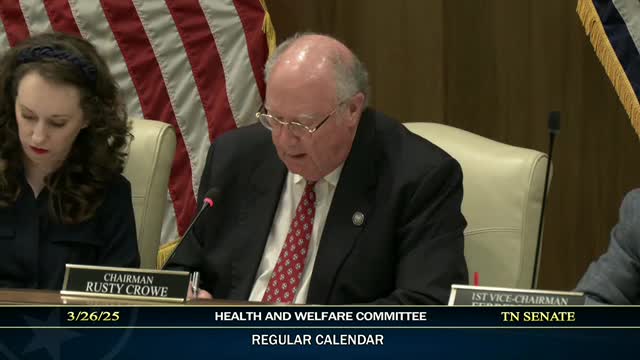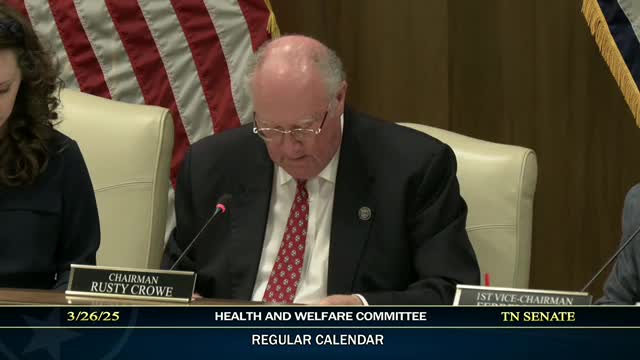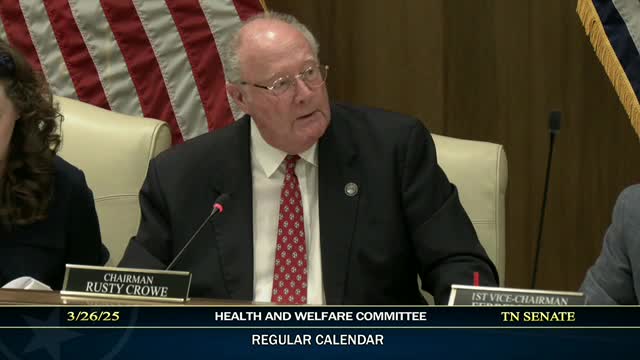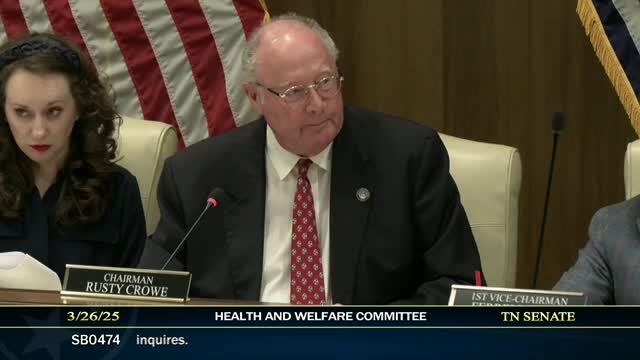Article not found
This article is no longer available. But don't worry—we've gathered other articles that discuss the same topic.

Votes at a glance: Tennessee Senate Health and Welfare Committee (May 20, 2025)

Committee advances two related bills to tighten nurse-practitioner supervision and collect practice data

Senate approves limited repeal of corporate practice ban, creates licensure pathway for anesthesiologist assistants in small counties

